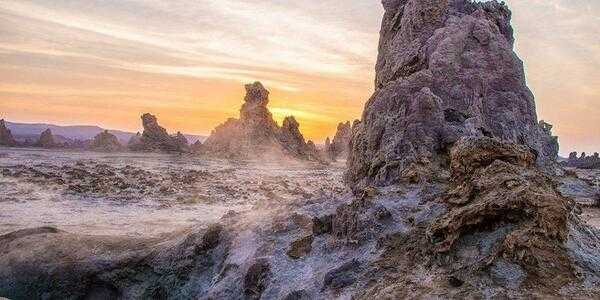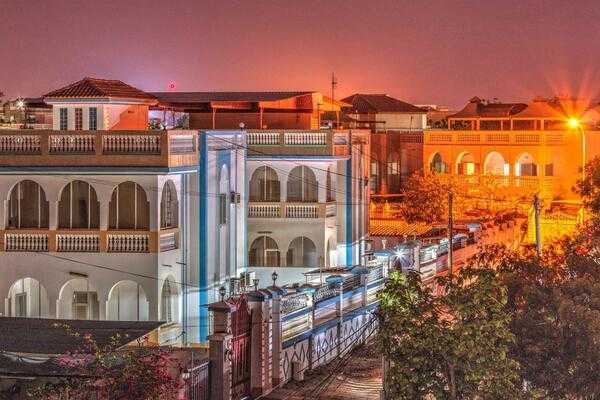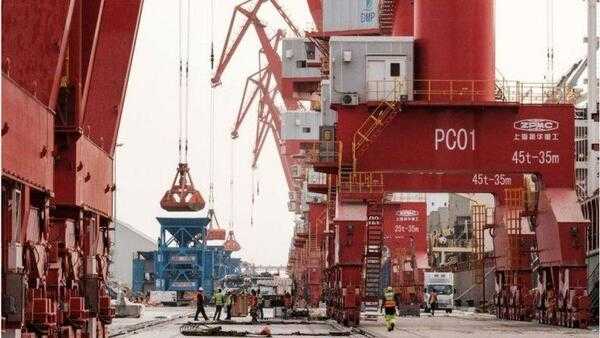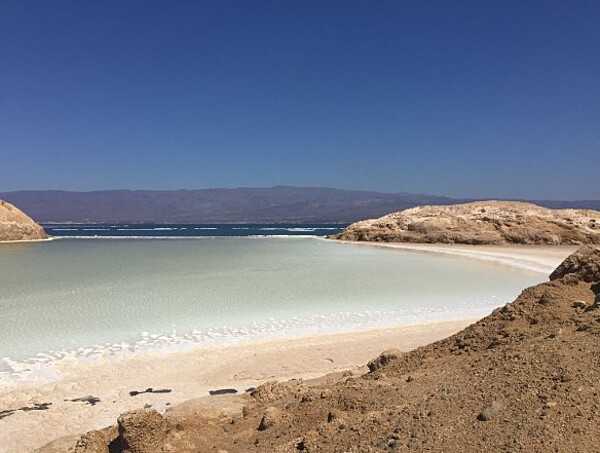Djibouti - DJ - DJI - DJI - Africa
Last updated: January 05, 2026
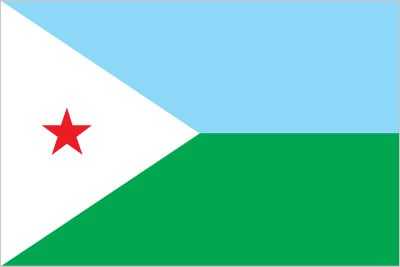
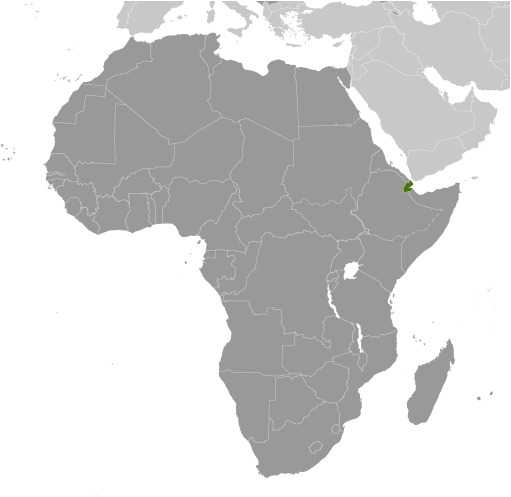
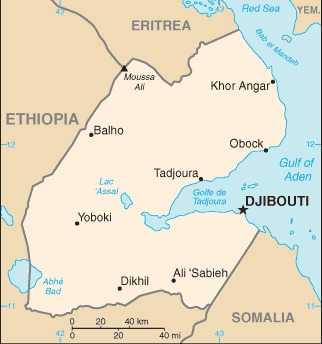
Djibouti Images
Djibouti Factbook Data
Diplomatic representation from the US
chief of mission: Ambassador Cynthia KIERSCHT (since 17 October 2024)
embassy: Lot 350-B Haramouss, B.P. 185
mailing address: 2150 Djibouti Place, Washington DC 20521-2150
telephone: [253] 21-45-30-00
FAX: [253] 21-45-31-29
email address and website:
DjiboutiACS@state.gov
https://dj.usembassy.gov/
embassy: Lot 350-B Haramouss, B.P. 185
mailing address: 2150 Djibouti Place, Washington DC 20521-2150
telephone: [253] 21-45-30-00
FAX: [253] 21-45-31-29
email address and website:
DjiboutiACS@state.gov
https://dj.usembassy.gov/
Age structure
0-14 years: 28.4% (male 141,829/female 140,696)
15-64 years: 67.4% (male 290,654/female 379,778)
65 years and over: 4.2% (2024 est.) (male 18,313/female 23,704)
15-64 years: 67.4% (male 290,654/female 379,778)
65 years and over: 4.2% (2024 est.) (male 18,313/female 23,704)
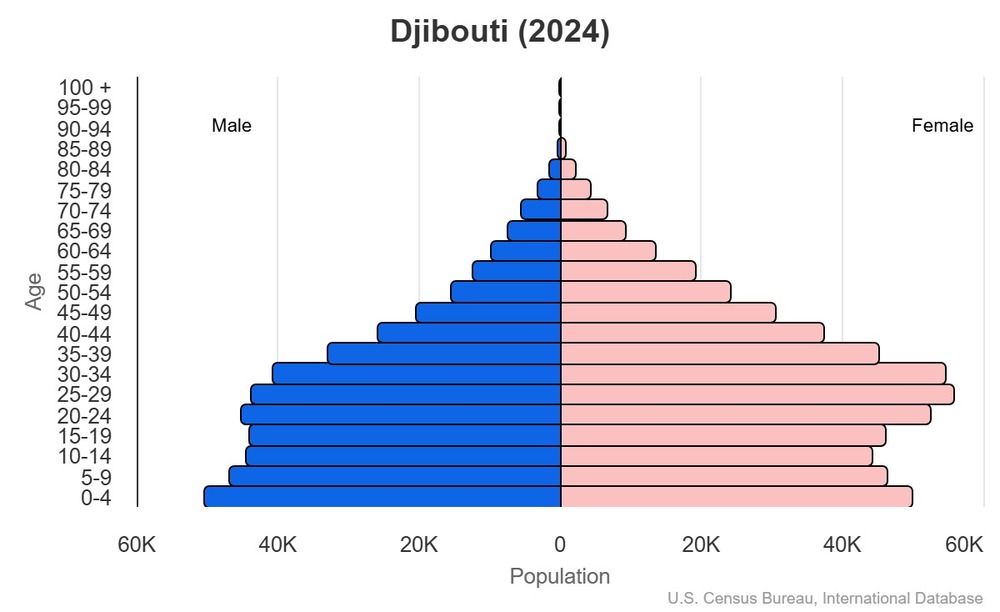
This is the population pyramid for Djibouti. A population pyramid illustrates the age and sex structure of a country's population and may provide insights about political and social stability, as well as economic development. The population is distributed along the horizontal axis, with males shown on the left and females on the right. The male and female populations are broken down into 5-year age groups represented as horizontal bars along the vertical axis, with the youngest age groups at the bottom and the oldest at the top. The shape of the population pyramid gradually evolves over time based on fertility, mortality, and international migration trends.
For additional information, please see the entry for Population pyramid on the Definitions and Notes page.
For additional information, please see the entry for Population pyramid on the Definitions and Notes page.
Geographic coordinates
11 30 N, 43 00 E
Sex ratio
at birth: 1.03 male(s)/female
0-14 years: 1.01 male(s)/female
15-64 years: 0.77 male(s)/female
65 years and over: 0.77 male(s)/female
total population: 0.83 male(s)/female (2024 est.)
0-14 years: 1.01 male(s)/female
15-64 years: 0.77 male(s)/female
65 years and over: 0.77 male(s)/female
total population: 0.83 male(s)/female (2024 est.)
Natural hazards
earthquakes; droughts; occasional cyclonic disturbances from the Indian Ocean bring heavy rains and flash floods
volcanism: experiences limited volcanic activity; Ardoukoba (298 m) last erupted in 1978; Manda-Inakir, located along the Ethiopian border, is also historically active
volcanism: experiences limited volcanic activity; Ardoukoba (298 m) last erupted in 1978; Manda-Inakir, located along the Ethiopian border, is also historically active
Area - comparative
slightly smaller than New Jersey
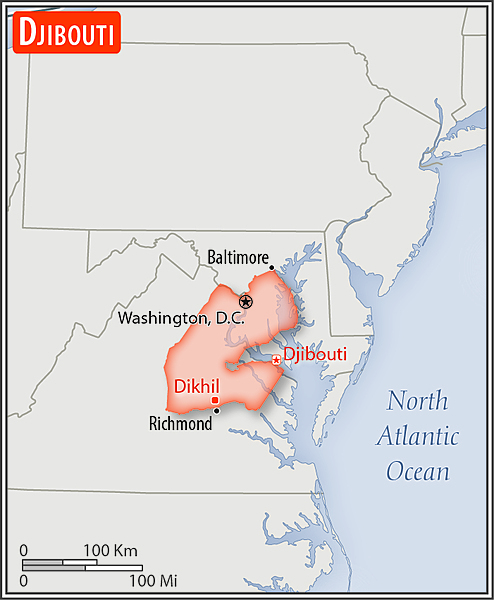
slightly smaller than New Jersey
Background
Present-day Djibouti was the site of the medieval Ifat and Adal Sultanates. In the late 19th century, the Afar sultans signed treaties with the French that allowed the latter to establish the colony of French Somaliland in 1862. The French signed additional treaties with the ethnic Somali in 1885.
Tension between the ethnic Afar and Somali populations increased over time, as the ethnic Somalis perceived that the French unfairly favored the Afar and gave them disproportionate influence in local governance. In 1958, the French held a referendum that provided residents of French Somaliland the option to either continue their association with France or to join neighboring Somalia as it established its independence. Ethnic Somali protested the vote, because French colonial leaders did not recognize many Somali as residents, which gave the Afar outsized influence in the decision to uphold ties with France. After a second referendum in 1967, the French changed the territory’s name to the French Territory of the Afars and the Issas, in part to underscore their relationship with the ethnic Afar and downplay the significance of the ethnic Somalis. A final referendum in 1977 established Djibouti as an independent nation and granted ethnic Somalis Djiboutian nationality, formally resetting the balance of power between the majority ethnic Somalis and minority ethnic Afar residents. Upon independence, the country was named after its capital city of Djibouti. Hassan Gouled APTIDON, an ethnic Somali leader, installed an authoritarian one-party state and served as president until 1999. Unrest between the Afar minority and Somali majority culminated in a civil war during the 1990s that ended in 2001 with a peace accord between Afar rebels and the Somali Issa-dominated government. In 1999, Djibouti's first multiparty presidential election resulted in the election of Ismail Omar GUELLEH as president; he was reelected to a second term in 2005 and extended his tenure in office via a constitutional amendment, which allowed him to serve his third and fourth terms, and to begin a fifth term in 2021.
Djibouti occupies a strategic geographic location at the intersection of the Red Sea and the Gulf of Aden. Its ports handle 95% of Ethiopia’s trade. Djibouti’s ports also service transshipments between Europe, the Middle East, and Asia. The government has longstanding ties to France, which maintains a military presence in the country, as do the US, Japan, Italy, Germany, Spain, and China.
Tension between the ethnic Afar and Somali populations increased over time, as the ethnic Somalis perceived that the French unfairly favored the Afar and gave them disproportionate influence in local governance. In 1958, the French held a referendum that provided residents of French Somaliland the option to either continue their association with France or to join neighboring Somalia as it established its independence. Ethnic Somali protested the vote, because French colonial leaders did not recognize many Somali as residents, which gave the Afar outsized influence in the decision to uphold ties with France. After a second referendum in 1967, the French changed the territory’s name to the French Territory of the Afars and the Issas, in part to underscore their relationship with the ethnic Afar and downplay the significance of the ethnic Somalis. A final referendum in 1977 established Djibouti as an independent nation and granted ethnic Somalis Djiboutian nationality, formally resetting the balance of power between the majority ethnic Somalis and minority ethnic Afar residents. Upon independence, the country was named after its capital city of Djibouti. Hassan Gouled APTIDON, an ethnic Somali leader, installed an authoritarian one-party state and served as president until 1999. Unrest between the Afar minority and Somali majority culminated in a civil war during the 1990s that ended in 2001 with a peace accord between Afar rebels and the Somali Issa-dominated government. In 1999, Djibouti's first multiparty presidential election resulted in the election of Ismail Omar GUELLEH as president; he was reelected to a second term in 2005 and extended his tenure in office via a constitutional amendment, which allowed him to serve his third and fourth terms, and to begin a fifth term in 2021.
Djibouti occupies a strategic geographic location at the intersection of the Red Sea and the Gulf of Aden. Its ports handle 95% of Ethiopia’s trade. Djibouti’s ports also service transshipments between Europe, the Middle East, and Asia. The government has longstanding ties to France, which maintains a military presence in the country, as do the US, Japan, Italy, Germany, Spain, and China.
Environmental issues
inadequate supplies of potable water; water pollution; limited arable land; deforestation (forests threatened by agriculture and the use of wood for fuel); desertification; endangered species
International environmental agreements
party to: Biodiversity, Climate Change, Climate Change-Kyoto Protocol, Climate Change-Paris Agreement, Comprehensive Nuclear Test Ban, Desertification, Endangered Species, Hazardous Wastes, Law of the Sea, Ozone Layer Protection, Ship Pollution, Wetlands
signed, but not ratified: none of the selected agreements
signed, but not ratified: none of the selected agreements
Population below poverty line
21.1% (2017 est.)
note: % of population with income below national poverty line
note: % of population with income below national poverty line
Household income or consumption by percentage share
lowest 10%: 1.9% (2017 est.)
highest 10%: 32.3% (2017 est.)
note: % share of income accruing to lowest and highest 10% of population
highest 10%: 32.3% (2017 est.)
note: % share of income accruing to lowest and highest 10% of population
Exports - commodities
raw sugar, seed oils, cars, palm oil, rice (2023)
note: top five export commodities based on value in dollars
note: top five export commodities based on value in dollars
Exports - partners
Ethiopia 77%, UAE 5%, China 3%, Singapore 2%, France 2% (2023)
note: top five export partners based on percentage share of exports
note: top five export partners based on percentage share of exports
Administrative divisions
6 districts (cercles, singular - cercle); Ali Sabieh, Arta, Dikhil, Djibouti, Obock, Tadjourah
Agricultural products
vegetables, beans, milk, beef, camel milk, lemons/limes, goat meat, lamb/mutton, tomatoes, beef offal (2023)
note: top ten agricultural products based on tonnage
note: top ten agricultural products based on tonnage
Budget
revenues: $725 million (2019 est.)
expenditures: $754 million (2019 est.)
expenditures: $754 million (2019 est.)
Capital
name: Djibouti
geographic coordinates: 11 35 N, 43 09 E
time difference: UTC+3 (8 hours ahead of Washington, DC, during Standard Time)
etymology: the name is said to derive from the Afar word gabouri, meaning "plate," in reference to a palm-fiber plate used for ceremonial purposes
geographic coordinates: 11 35 N, 43 09 E
time difference: UTC+3 (8 hours ahead of Washington, DC, during Standard Time)
etymology: the name is said to derive from the Afar word gabouri, meaning "plate," in reference to a palm-fiber plate used for ceremonial purposes
Imports - commodities
refined petroleum, palm oil, fertilizers, cars, seed oils (2023)
note: top five import commodities based on value in dollars
note: top five import commodities based on value in dollars
Climate
desert; torrid, dry
Coastline
314 km
Constitution
history: approved by referendum 4 September 1992
amendment process: proposed by the president of the republic or by the National Assembly; Assembly consideration of proposals requires assent of at least one third of the membership; passage requires a simple majority vote by the Assembly and approval by simple majority vote in a referendum; the president can opt to bypass a referendum if adopted by at least two-thirds majority vote of the Assembly; constitutional articles on the sovereignty of Djibouti, its republican form of government, and its pluralist form of democracy cannot be amended
amendment process: proposed by the president of the republic or by the National Assembly; Assembly consideration of proposals requires assent of at least one third of the membership; passage requires a simple majority vote by the Assembly and approval by simple majority vote in a referendum; the president can opt to bypass a referendum if adopted by at least two-thirds majority vote of the Assembly; constitutional articles on the sovereignty of Djibouti, its republican form of government, and its pluralist form of democracy cannot be amended
Exchange rates
Djiboutian francs (DJF) per US dollar -
Exchange rates:
177.721 (2024 est.)
177.721 (2023 est.)
177.721 (2022 est.)
177.721 (2021 est.)
177.721 (2020 est.)
Exchange rates:
177.721 (2024 est.)
177.721 (2023 est.)
177.721 (2022 est.)
177.721 (2021 est.)
177.721 (2020 est.)
Executive branch
chief of state: President Ismail Omar GUELLEH (since 8 May 1999)
head of government: Prime Minister Abdoulkader Kamil MOHAMED (since 1 April 2013)
cabinet: Council of Ministers appointed by the prime minister
election/appointment process: president directly elected by absolute-majority popular vote in 2 rounds, if needed, for a 5-year term; prime minister appointed by the president
most recent election date: 9 April 2021
election results:
2021: Ismail Omar GUELLEH reelected president for a fifth term; percent of vote - Ismail Omar GUELLEH (RPP) 97.4%, Zakaria Ismael FARAH (MDEND) 2.7%
2016: Ismail Omar GUELLEH reelected president for a fourth term; percent of vote - Ismail Omar GUELLEH (RPP) 87%, Omar Elmi KHAIREH (CDU) 7.3%, other 5.6%
expected date of next election: April 2026
head of government: Prime Minister Abdoulkader Kamil MOHAMED (since 1 April 2013)
cabinet: Council of Ministers appointed by the prime minister
election/appointment process: president directly elected by absolute-majority popular vote in 2 rounds, if needed, for a 5-year term; prime minister appointed by the president
most recent election date: 9 April 2021
election results:
2021: Ismail Omar GUELLEH reelected president for a fifth term; percent of vote - Ismail Omar GUELLEH (RPP) 97.4%, Zakaria Ismael FARAH (MDEND) 2.7%
2016: Ismail Omar GUELLEH reelected president for a fourth term; percent of vote - Ismail Omar GUELLEH (RPP) 87%, Omar Elmi KHAIREH (CDU) 7.3%, other 5.6%
expected date of next election: April 2026
Flag
description: two equal horizontal bands of light blue (top) and light green, with a white isosceles triangle based on the left side that has a five-pointed red star in the center
meaning: blue stands for sea, sky, and the Issa Somali people, green for earth and the Afar people, and white for peace; the red star stands for the struggle for independence and unity
meaning: blue stands for sea, sky, and the Issa Somali people, green for earth and the Afar people, and white for peace; the red star stands for the struggle for independence and unity
Independence
27 June 1977 (from France)
Industries
construction, agricultural processing, shipping
Judicial branch
highest court(s): Supreme Court or Cour Suprême (consists of NA magistrates); Constitutional Council (consists of 6 magistrates)
judge selection and term of office: Supreme Court magistrates appointed by the president with the advice of the Superior Council of the Magistracy (CSM), a 10-member body consisting of 4 judges, 3 members (non-parliamentarians and judges) appointed by the president, and 3 appointed by the National Assembly president or speaker; magistrates appointed for life with retirement at age 65; Constitutional Council magistrate appointments - 2 by the president of the republic, 2 by the president of the National Assembly, and 2 by the CSM; magistrates appointed for 8-year, non-renewable terms
subordinate courts: High Court of Appeal; Courts of First Instance; customary courts; State Court (replaced sharia courts in 2003)
judge selection and term of office: Supreme Court magistrates appointed by the president with the advice of the Superior Council of the Magistracy (CSM), a 10-member body consisting of 4 judges, 3 members (non-parliamentarians and judges) appointed by the president, and 3 appointed by the National Assembly president or speaker; magistrates appointed for life with retirement at age 65; Constitutional Council magistrate appointments - 2 by the president of the republic, 2 by the president of the National Assembly, and 2 by the CSM; magistrates appointed for 8-year, non-renewable terms
subordinate courts: High Court of Appeal; Courts of First Instance; customary courts; State Court (replaced sharia courts in 2003)
Land boundaries
total: 528 km
border countries (3): Eritrea 125 km; Ethiopia 342 km; Somalia 61 km
border countries (3): Eritrea 125 km; Ethiopia 342 km; Somalia 61 km
Land use
agricultural land: 73.5% (2023 est.)
arable land: 0.1% (2023 est.)
permanent crops: 0% (2023 est.)
permanent pasture: 73.3% (2023 est.)
forest: 0.3% (2023 est.)
other: 26.2% (2023 est.)
arable land: 0.1% (2023 est.)
permanent crops: 0% (2023 est.)
permanent pasture: 73.3% (2023 est.)
forest: 0.3% (2023 est.)
other: 26.2% (2023 est.)
Legal system
mixed system based primarily on the French civil code (as it existed in 1997), Islamic religious law (in matters of family law and successions), and customary law
Legislative branch
legislature name: National Assembly (Assemblée nationale)
legislative structure: unicameral
number of seats: 65 (all directly elected)
electoral system: mixed system
scope of elections: full renewal
term in office: 5 years
most recent election date: 2/24/2023
parties elected and seats per party: Union for the Presidential Majority (UMP) (58); Union for Democracy and Justice (UDJ) (7)
percentage of women in chamber: 26.2%
expected date of next election: February 2028
note: most opposition parties boycotted the 2023 polls, stating the elections were "not free, not transparent, and not democratic"
legislative structure: unicameral
number of seats: 65 (all directly elected)
electoral system: mixed system
scope of elections: full renewal
term in office: 5 years
most recent election date: 2/24/2023
parties elected and seats per party: Union for the Presidential Majority (UMP) (58); Union for Democracy and Justice (UDJ) (7)
percentage of women in chamber: 26.2%
expected date of next election: February 2028
note: most opposition parties boycotted the 2023 polls, stating the elections were "not free, not transparent, and not democratic"
Maritime claims
territorial sea: 12 nm
contiguous zone: 24 nm
exclusive economic zone: 200 nm
contiguous zone: 24 nm
exclusive economic zone: 200 nm
International organization participation
ACP, AfDB, AFESD, AMF, ATMIS, AU, CAEU (candidates), COMESA, FAO, G-77, IBRD, ICAO, ICCt, ICRM, IDA, IDB, IFAD, IFC, IFRCS, IGAD, ILO, IMF, IMO, Interpol, IOC, IOM, IPU, ITU, ITUC (NGOs), LAS, MIGA, MINURSO, NAM, OIC, OIF, OPCW, UN, UNCTAD, UNESCO, UNHCR, UNIDO, UNWTO, UPU, WCO, WFTU (NGOs), WHO, WIPO, WMO, WTO
National holiday
Independence Day, 27 June (1977)
Nationality
noun: Djiboutian(s)
adjective: Djiboutian
adjective: Djiboutian
Natural resources
potential geothermal power, gold, clay, granite, limestone, marble, salt, diatomite, gypsum, pumice, petroleum
Geography - note
strategic location near world's busiest shipping lanes and close to Arabian oilfields; Lac Assal (Lake Assal) is the lowest point in Africa and the saltiest lake in the world
Economic overview
food import-dependent Horn of Africa economy driven by various national military bases and port-based trade; fairly resilient from COVID-19 disruptions; major re-exporter; increasing Ethiopian and Chinese trade relations; investing in infrastructure
Political parties
Front for Restoration of Unity and Democracy (Front pour la Restauration de l'Unite Democratique) or FRUD
National Democratic Party or PND
People's Rally for Progress or RPP
Peoples Social Democratic Party or PPSD
Union for Democracy and Justice or UDJ
Union for the Presidential Majority coalition or UMP
Union of Reform Partisans or UPR
National Democratic Party or PND
People's Rally for Progress or RPP
Peoples Social Democratic Party or PPSD
Union for Democracy and Justice or UDJ
Union for the Presidential Majority coalition or UMP
Union of Reform Partisans or UPR
Railways
total: 97 km (2017) (Djibouti segment of the 756 km Addis Ababa-Djibouti railway)
standard gauge: 97 km (2017) 1.435-m gauge
standard gauge: 97 km (2017) 1.435-m gauge
Suffrage
18 years of age; universal
Terrain
coastal plain and plateau separated by central mountains
Government type
presidential republic
Country name
conventional long form: Republic of Djibouti
conventional short form: Djibouti
local long form: République de Djibouti (French)/ Jumhuriyat Jibuti (Arabic)
local short form: Djibouti (French)/ Jibuti (Arabic)
former: French Somaliland, French Territory of the Afars and Issas
etymology: the country name derives from the capital city of Djibouti
conventional short form: Djibouti
local long form: République de Djibouti (French)/ Jumhuriyat Jibuti (Arabic)
local short form: Djibouti (French)/ Jibuti (Arabic)
former: French Somaliland, French Territory of the Afars and Issas
etymology: the country name derives from the capital city of Djibouti
Location
Eastern Africa, bordering the Gulf of Aden and the Red Sea, between Eritrea and Somalia
Map references
Africa
Irrigated land
10 sq km (2012)
Diplomatic representation in the US
chief of mission: Ambassador Mohamed Siad DOUALEH (28 January 2016)
chancery: 1156 15th Street NW, Suite 515, Washington, DC 20005
telephone: [1] (202) 331-0270
FAX: [1] (202) 331-0302
email address and website:
info@djiboutiembassyus.org
https://www.djiboutiembassyus.org/
chancery: 1156 15th Street NW, Suite 515, Washington, DC 20005
telephone: [1] (202) 331-0270
FAX: [1] (202) 331-0302
email address and website:
info@djiboutiembassyus.org
https://www.djiboutiembassyus.org/
Internet users
percent of population: 65% (2023 est.)
Internet country code
.dj
Refugees and internally displaced persons
refugees: 32,636 (2024 est.)
GDP (official exchange rate)
$4.086 billion (2024 est.)
note: data in current dollars at official exchange rate
note: data in current dollars at official exchange rate
Trafficking in persons
tier rating: Tier 2 Watch List — Djibouti does not fully meet the minimum standards for the elimination of trafficking but is making significant efforts to do so, therefore Djibouti was upgraded to Tier 2 Watch List; for more details, go to: https://www.state.gov/reports/2025-trafficking-in-persons-report/djibouti/
Total renewable water resources
300 million cubic meters (2022 est.)
Urbanization
urban population: 78.6% of total population (2023)
rate of urbanization: 1.56% annual rate of change (2020-25 est.)
rate of urbanization: 1.56% annual rate of change (2020-25 est.)
Broadcast media
state-owned Radiodiffusion-Télévision de Djibouti operates the sole terrestrial TV station, as well as the 2 domestic radio networks; no private TV or radio stations; transmissions of several international broadcasters are available (2019)
Drinking water source
improved:
urban: 84.1% of population (2022 est.)
rural: 47.3% of population (2022 est.)
total: 76.2% of population (2022 est.)
unimproved:
urban: 15.9% of population (2022 est.)
rural: 52.7% of population (2022 est.)
total: 23.8% of population (2022 est.)
urban: 84.1% of population (2022 est.)
rural: 47.3% of population (2022 est.)
total: 76.2% of population (2022 est.)
unimproved:
urban: 15.9% of population (2022 est.)
rural: 52.7% of population (2022 est.)
total: 23.8% of population (2022 est.)
National anthem(s)
title: "Jabuuti" (Djibouti)
lyrics/music: Aden ELMI/Abdi ROBLEH
history: adopted 1977
lyrics/music: Aden ELMI/Abdi ROBLEH
history: adopted 1977
This is an audio of the National Anthem for Djibouti. The national anthem is generally a patriotic musical composition - usually in the form of a song or hymn of praise - that evokes and eulogizes the history, traditions, or struggles of a nation or its people. National anthems can be officially recognized as a national song by a country's constitution or by an enacted law, or simply by tradition. Although most anthems contain lyrics, some do not.
Major urban areas - population
600,000 DJIBOUTI (capital) (2023)
International law organization participation
accepts compulsory ICJ jurisdiction with reservations; accepts ICCt jurisdiction
Physician density
0.21 physicians/1,000 population (2022)
Hospital bed density
1.4 beds/1,000 population (2018 est.)
National symbol(s)
red star
GDP - composition, by end use
household consumption: 73% (2024 est.)
government consumption: 18.8% (2024 est.)
investment in fixed capital: 26.3% (2024 est.)
investment in inventories: -30.1% (2024 est.)
exports of goods and services: 160.8% (2024 est.)
imports of goods and services: -148.3% (2024 est.)
note: figures may not total 100% due to rounding or gaps in data collection
government consumption: 18.8% (2024 est.)
investment in fixed capital: 26.3% (2024 est.)
investment in inventories: -30.1% (2024 est.)
exports of goods and services: 160.8% (2024 est.)
imports of goods and services: -148.3% (2024 est.)
note: figures may not total 100% due to rounding or gaps in data collection
Dependency ratios
total dependency ratio: 48.4 (2024 est.)
youth dependency ratio: 42.1 (2024 est.)
elderly dependency ratio: 6.3 (2024 est.)
potential support ratio: 16 (2024 est.)
youth dependency ratio: 42.1 (2024 est.)
elderly dependency ratio: 6.3 (2024 est.)
potential support ratio: 16 (2024 est.)
Citizenship
citizenship by birth: no
citizenship by descent only: the mother must be a citizen of Djibouti
dual citizenship recognized: no
residency requirement for naturalization: 10 years
citizenship by descent only: the mother must be a citizen of Djibouti
dual citizenship recognized: no
residency requirement for naturalization: 10 years
Population distribution
most densely populated areas are in the east; the largest city is Djibouti, and the other cities in the country are a fraction of its size, as shown in this population distribution map
Electricity access
electrification - total population: 65% (2022 est.)
electrification - urban areas: 72.8%
electrification - rural areas: 36.6%
electrification - urban areas: 72.8%
electrification - rural areas: 36.6%
Civil aircraft registration country code prefix
J2
Sanitation facility access
improved:
urban: 87.7% of population (2022 est.)
rural: 24.2% of population (2022 est.)
total: 74% of population (2022 est.)
unimproved:
urban: 12.3% of population (2022 est.)
rural: 75.8% of population (2022 est.)
total: 26% of population (2022 est.)
urban: 87.7% of population (2022 est.)
rural: 24.2% of population (2022 est.)
total: 74% of population (2022 est.)
unimproved:
urban: 12.3% of population (2022 est.)
rural: 75.8% of population (2022 est.)
total: 26% of population (2022 est.)
Ethnic groups
Somali 60%, Afar 35%, other 5% (mostly Yemeni Arab, also French, Ethiopian, and Italian)
Religions
Sunni Muslim 94% (nearly all Djiboutians), other 6% (mainly foreign-born residents - Shia Muslim, Christian, Hindu, Jewish, Baha'i, and atheist)
Languages
French (official), Arabic (official), Somali, Afar
Imports - partners
China 32%, India 12%, UAE 10%, Turkey 6%, Morocco 5% (2023)
note: top five import partners based on percentage share of imports
note: top five import partners based on percentage share of imports
Military - note
Djibouti's military forces are largely focused on border, coastal, and internal security duties, such as counterterrorism; as recently as February 2025, Djiboutian forces have conducted operations near its border with Ethiopia against members of the Armed Front for the Restoration of Unity and Democracy (FRUD A), which Djibouti considers a terrorist group
China, France, Italy, Japan, and the US maintain bases in Djibouti for regional military missions, including counterterrorism, counter-piracy, crisis response, and security assistance; other countries, such as Germany and Spain, have smaller military contingents; the EU and NATO also maintain a presence in Djibouti to support multinational naval counter-piracy operations and maritime training efforts (2025)
China, France, Italy, Japan, and the US maintain bases in Djibouti for regional military missions, including counterterrorism, counter-piracy, crisis response, and security assistance; other countries, such as Germany and Spain, have smaller military contingents; the EU and NATO also maintain a presence in Djibouti to support multinational naval counter-piracy operations and maritime training efforts (2025)
Military expenditures
3.5% of GDP (2019 est.)
3.5% of GDP (2018 est.)
3.3% of GDP (2017 est.)
2.7% of GDP (2016 est.)
2.5% of GDP (2015 est.)
3.5% of GDP (2018 est.)
3.3% of GDP (2017 est.)
2.7% of GDP (2016 est.)
2.5% of GDP (2015 est.)
Elevation
highest point: Moussa Ali 2,021 m
lowest point: Lac Assal -155 m
mean elevation: 430 m
lowest point: Lac Assal -155 m
mean elevation: 430 m
Health expenditure
2.9% of GDP (2021)
5.2% of national budget (2022 est.)
5.2% of national budget (2022 est.)
Military and security service personnel strengths
estimated 10-12,000 active Armed Forces, including Gendarmerie (2025)
Military deployments
approximately 1,500 Somalia (AUSSOM) (2025)
Terrorist group(s)
Terrorist group(s): al-Shabaab
note: details about the history, aims, leadership, organization, areas of operation, tactics, targets, weapons, size, and sources of support of the group(s) appear(s) in the Terrorism reference guide
note: details about the history, aims, leadership, organization, areas of operation, tactics, targets, weapons, size, and sources of support of the group(s) appear(s) in the Terrorism reference guide
Total water withdrawal
municipal: 16 million cubic meters (2022 est.)
industrial: 0 cubic meters (2022 est.)
agricultural: 3 million cubic meters (2022 est.)
industrial: 0 cubic meters (2022 est.)
agricultural: 3 million cubic meters (2022 est.)
Waste and recycling
municipal solid waste generated annually: 115,000 tons (2024 est.)
percent of municipal solid waste recycled: 14.9% (2022 est.)
percent of municipal solid waste recycled: 14.9% (2022 est.)
Major lakes (area sq km)
salt water lake(s): Abhe Bad/Abhe Bid Hayk (shared with Ethiopia) - 780 sq km
Coal
exports: 8 metric tons (2023 est.)
imports: 19,000 metric tons (2023 est.)
imports: 19,000 metric tons (2023 est.)
Electricity generation sources
fossil fuels: 65.3% of total installed capacity (2023 est.)
solar: 0.5% of total installed capacity (2023 est.)
wind: 34.2% of total installed capacity (2023 est.)
solar: 0.5% of total installed capacity (2023 est.)
wind: 34.2% of total installed capacity (2023 est.)
Petroleum
refined petroleum consumption: 5,000 bbl/day (2023 est.)
Currently married women (ages 15-49)
46.5% (2017 est.)
Remittances
1.4% of GDP (2024 est.)
1.5% of GDP (2023 est.)
1.6% of GDP (2022 est.)
note: personal transfers and compensation between resident and non-resident individuals/households/entities
1.5% of GDP (2023 est.)
1.6% of GDP (2022 est.)
note: personal transfers and compensation between resident and non-resident individuals/households/entities
Child marriage
women married by age 15: 1.4% (2019)
women married by age 18: 6.5% (2019)
women married by age 18: 6.5% (2019)
Ports
total ports: 2 (2024)
large: 0
medium: 0
small: 2
very small: 0
ports with oil terminals: 2
key ports: Djibouti, Doraleh
large: 0
medium: 0
small: 2
very small: 0
ports with oil terminals: 2
key ports: Djibouti, Doraleh
National color(s)
light blue, green, white, red
Particulate matter emissions
21 micrograms per cubic meter (2019 est.)
Labor force
265,200 (2024 est.)
note: number of people ages 15 or older who are employed or seeking work
note: number of people ages 15 or older who are employed or seeking work
Youth unemployment rate (ages 15-24)
total: 76.3% (2024 est.)
male: 75.3% (2024 est.)
female: 77.9% (2024 est.)
note: % of labor force ages 15-24 seeking employment
male: 75.3% (2024 est.)
female: 77.9% (2024 est.)
note: % of labor force ages 15-24 seeking employment
Debt - external
$2.531 billion (2023 est.)
note: present value of external debt in current US dollars
note: present value of external debt in current US dollars
Maternal mortality ratio
162 deaths/100,000 live births (2023 est.)
Reserves of foreign exchange and gold
$348.725 million (2024 est.)
$502.034 million (2023 est.)
$589.437 million (2022 est.)
note: holdings of gold (year-end prices)/foreign exchange/special drawing rights in current dollars
$502.034 million (2023 est.)
$589.437 million (2022 est.)
note: holdings of gold (year-end prices)/foreign exchange/special drawing rights in current dollars
Unemployment rate
25.9% (2024 est.)
26.2% (2023 est.)
26.4% (2022 est.)
note: % of labor force seeking employment
26.2% (2023 est.)
26.4% (2022 est.)
note: % of labor force seeking employment
Population
total: 994,974 (2024 est.)
male: 450,796
female: 544,178
male: 450,796
female: 544,178
Carbon dioxide emissions
685,000 metric tonnes of CO2 (2023 est.)
from coal and metallurgical coke: 45,000 metric tonnes of CO2 (2023 est.)
from petroleum and other liquids: 640,000 metric tonnes of CO2 (2023 est.)
from coal and metallurgical coke: 45,000 metric tonnes of CO2 (2023 est.)
from petroleum and other liquids: 640,000 metric tonnes of CO2 (2023 est.)
Area
total : 23,200 sq km
land: 23,180 sq km
water: 20 sq km
land: 23,180 sq km
water: 20 sq km
Real GDP (purchasing power parity)
$7.995 billion (2024 est.)
$7.546 billion (2023 est.)
$7.028 billion (2022 est.)
note: data in 2021 dollars
$7.546 billion (2023 est.)
$7.028 billion (2022 est.)
note: data in 2021 dollars
Airports
10 (2025)
Telephones - mobile cellular
total subscriptions: 574,000 (2023 est.)
subscriptions per 100 inhabitants: 46 (2022 est.)
subscriptions per 100 inhabitants: 46 (2022 est.)
Gini Index coefficient - distribution of family income
41.6 (2017 est.)
note: index (0-100) of income distribution; higher values represent greater inequality
note: index (0-100) of income distribution; higher values represent greater inequality
Inflation rate (consumer prices)
2.1% (2024 est.)
1.5% (2023 est.)
5.2% (2022 est.)
note: annual % change based on consumer prices
1.5% (2023 est.)
5.2% (2022 est.)
note: annual % change based on consumer prices
Current account balance
$610.124 million (2024 est.)
$721.349 million (2023 est.)
$656.207 million (2022 est.)
note: balance of payments - net trade and primary/secondary income in current dollars
$721.349 million (2023 est.)
$656.207 million (2022 est.)
note: balance of payments - net trade and primary/secondary income in current dollars
Real GDP per capita
$6,800 (2024 est.)
$6,500 (2023 est.)
$6,200 (2022 est.)
note: data in 2021 dollars
$6,500 (2023 est.)
$6,200 (2022 est.)
note: data in 2021 dollars
Broadband - fixed subscriptions
total: 17,000 (2023 est.)
subscriptions per 100 inhabitants: 1 (2023 est.)
subscriptions per 100 inhabitants: 1 (2023 est.)
Obesity - adult prevalence rate
13.5% (2016)
Energy consumption per capita
10.428 million Btu/person (2023 est.)
Electricity
installed generating capacity: 210,000 kW (2023 est.)
consumption: 584.997 million kWh (2023 est.)
imports: 512 million kWh (2023 est.)
transmission/distribution losses: 128.74 million kWh (2023 est.)
consumption: 584.997 million kWh (2023 est.)
imports: 512 million kWh (2023 est.)
transmission/distribution losses: 128.74 million kWh (2023 est.)
Merchant marine
total: 40 (2023)
by type: bulk carrier 1, container ship 1, general cargo 4, oil tanker 13, other 21
by type: bulk carrier 1, container ship 1, general cargo 4, oil tanker 13, other 21
Children under the age of 5 years underweight
17.7% (2023 est.)
Imports
$4.765 billion (2024 est.)
$5.269 billion (2023 est.)
$5.096 billion (2022 est.)
note: balance of payments - imports of goods and services in current dollars
$5.269 billion (2023 est.)
$5.096 billion (2022 est.)
note: balance of payments - imports of goods and services in current dollars
Exports
$5.25 billion (2024 est.)
$5.877 billion (2023 est.)
$5.674 billion (2022 est.)
note: balance of payments - exports of goods and services in current dollars
$5.877 billion (2023 est.)
$5.674 billion (2022 est.)
note: balance of payments - exports of goods and services in current dollars
Heliports
6 (2025)
Telephones - fixed lines
total subscriptions: 29,000 (2023 est.)
subscriptions per 100 inhabitants: 2 (2023 est.)
subscriptions per 100 inhabitants: 2 (2023 est.)
Alcohol consumption per capita
total: 0.21 liters of pure alcohol (2019 est.)
beer: 0.05 liters of pure alcohol (2019 est.)
wine: 0.02 liters of pure alcohol (2019 est.)
spirits: 0.14 liters of pure alcohol (2019 est.)
other alcohols: 0 liters of pure alcohol (2019 est.)
beer: 0.05 liters of pure alcohol (2019 est.)
wine: 0.02 liters of pure alcohol (2019 est.)
spirits: 0.14 liters of pure alcohol (2019 est.)
other alcohols: 0 liters of pure alcohol (2019 est.)
Life expectancy at birth
total population: 65.9 years (2024 est.)
male: 63.4 years
female: 68.5 years
male: 63.4 years
female: 68.5 years
Real GDP growth rate
6% (2024 est.)
7.4% (2023 est.)
5.2% (2022 est.)
note: annual GDP % growth based on constant local currency
7.4% (2023 est.)
5.2% (2022 est.)
note: annual GDP % growth based on constant local currency
Industrial production growth rate
9.7% (2024 est.)
note: annual % change in industrial value added based on constant local currency
note: annual % change in industrial value added based on constant local currency
GDP - composition, by sector of origin
agriculture: 2.6% (2024 est.)
industry: 15.4% (2024 est.)
services: 75.5% (2024 est.)
note: figures may not total 100% due to non-allocated consumption not captured in sector-reported data
industry: 15.4% (2024 est.)
services: 75.5% (2024 est.)
note: figures may not total 100% due to non-allocated consumption not captured in sector-reported data
Education expenditure
3.8% of GDP (2018 est.)
14.5% national budget (2018 est.)
14.5% national budget (2018 est.)
Military equipment inventories and acquisitions
the FAD's inventory is a mix of mostly older or secondhand equipment from a variety of suppliers, including China, France, Italy, Japan, the Netherlands, Russia/former Soviet Union, South Africa, Türkiye, and the US (2025)
Military service age and obligation
18-26 years of age for voluntary military service (2025)
Military and security forces
Djibouti Armed Forces (Forces Armées Djiboutiennes or FAD): Djiboutian (or National) Army, Djiboutian Navy (includes Djiboutian Coast Guard), Djiboutian Air Force; Djiboutian National Gendarmerie
Ministry of Interior: National Police (Police Nationale) (2025)
note 1: the National Gendarmerie is a security force with military status under the FAD and the Ministry of Defense, but also has responsibilities to the Ministry of Interior; the Gendarmerie's duties include providing security outside of Djibouti City and protecting critical infrastructure within the city, such as the international airport
note 2: the National Police are responsible for security within Djibouti City and have primary control over immigration and customs procedures for all land border-crossing points
Ministry of Interior: National Police (Police Nationale) (2025)
note 1: the National Gendarmerie is a security force with military status under the FAD and the Ministry of Defense, but also has responsibilities to the Ministry of Interior; the Gendarmerie's duties include providing security outside of Djibouti City and protecting critical infrastructure within the city, such as the international airport
note 2: the National Police are responsible for security within Djibouti City and have primary control over immigration and customs procedures for all land border-crossing points
Gross reproduction rate
1.03 (2025 est.)
Net migration rate
3.94 migrant(s)/1,000 population (2025 est.)
Median age
total: 26.7 years (2025 est.)
male: 24.4 years
female: 27.9 years
male: 24.4 years
female: 27.9 years
Total fertility rate
2.09 children born/woman (2025 est.)
Infant mortality rate
total: 44.3 deaths/1,000 live births (2025 est.)
male: 52.1 deaths/1,000 live births
female: 38 deaths/1,000 live births
male: 52.1 deaths/1,000 live births
female: 38 deaths/1,000 live births
Death rate
7 deaths/1,000 population (2025 est.)
Birth rate
21.46 births/1,000 population (2025 est.)
Population growth rate
1.84% (2025 est.)
